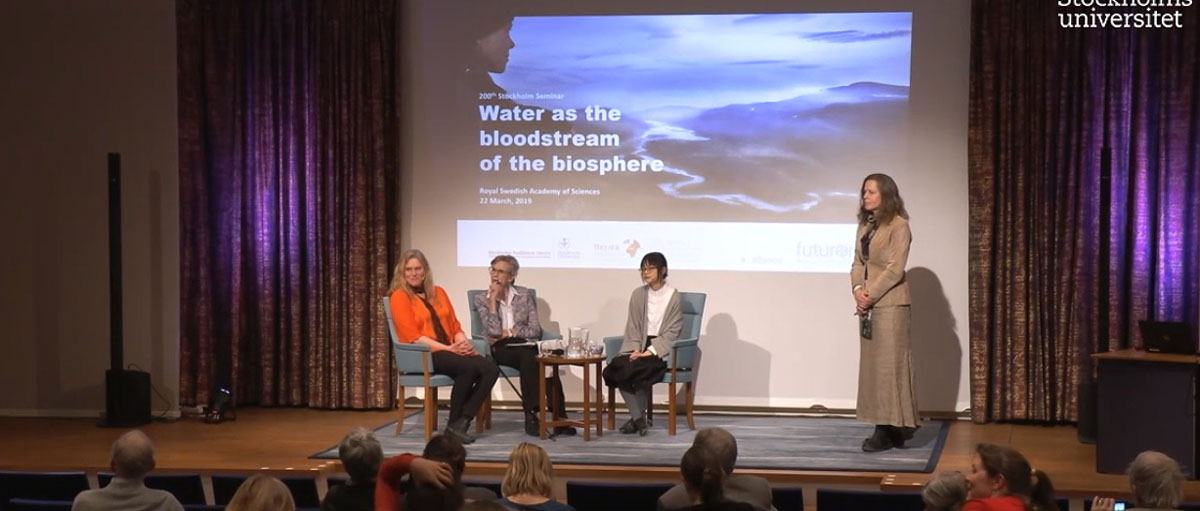
Photo: M. Eriksson/Azote
Bildtext får vara max två rader text. Hela texten ska högerjusteras om den bara ska innehålla fotobyline! Photo: B. Christensen/Azote
200TH Stockholm Seminar
Water as the bloodstream of the biosphere
Watch highlights from the the 200th Stockholm Seminars

Bildtext
Bildtext får vara max två rader text. Hela texten ska högerjusteras om den bara ska innehålla fotobyline! Photo: B. Christensen/Azote
Text
Water is essential for life on Earth and the prosperity of human civilization. As it flows through rivers and streams, rests in lakes and oceans, circulate through the roots and leaves of plants and falls as rain or snow, water serves as the bloodstream of the biosphere.
If the pressure on the water cycle at local, regional or the global scale becomes too great it can lead to unpredictable and potentially irreversible changes. In recent years the functions and importance of “green” water, the soil moisture from precipitation, used by plants via transpiration, is becoming increasingly understood. And studies how the water “bloodstream” is globally connected, shows that local land-uses changes can be connected to rainfall modifications in faraway areas.
On this year’s World Water Day and celebrating the 200th Stockholm Seminar, three generations of water resilience researchers at Stockholm Resilience Centre shared their research and reflections on the multiple ways that freshwater sustain the biosphere and human development.
This included the Blue Planet Prize 2018 awardee Prof. Malin Falkenmark’s lifework of articulating water’s fundamental role for Earth’s life support system, innovating the understanding of water scarcity, and propelling the recognition of green water as a valuable and manageable resource; centre director Dr. Line Gordon’s decade long research unravelling the critical roles of “invisible” water for social-ecological resilience; and Dr. Lan Wang-Erlandsson’s account of the newest advancements towards a revised freshwater planetary boundary that acknowledges all facets of water for supporting a stable and habitable Earth.
Programme details
13.00
Welcome
By Carl Folke Folke, Director of the Beijer Institute of Ecological Economics of the Royal Swedish Academy of Sciences and Science Director Stockholm Resilience Centre at Stockholm University
13.15
Water - Bloodstream of the Biosphere
Malin Falkenmark, professor Stockholm Resilience Centre at Stockholm University and SIWI, Awardee of the Blue Planet Prize 2018
14.00 Music
Echo, written and performed by Rosa Kvartetten: Daina Mateikaite (violin); Brita Pettersson(violin); Anna Manell (viola) and Jessie Langhard (cello)
14.10 Coffee break
14.40
The role of invisible water in sustaining ecosystem resilience and human development
Line Gordon, director and associate professor, Stockholm Resilience Centre at Stockholm University.
Towards a new water planetary boundary for Earth resilience
Lan Wang-Erlandsson, PhD, Stockholm Resilience Centre at Stockholm University.
15.20 Questions/discussion
15.45 Music
Sekstur, a folk song produced by Danish String Quartet, performed by Rosa Kvartetten: Daina Mateikaite (violin); Brita Pettersson(violin); Anna Manell (viola) and Jessie Langhard (cello).
16.00 End






